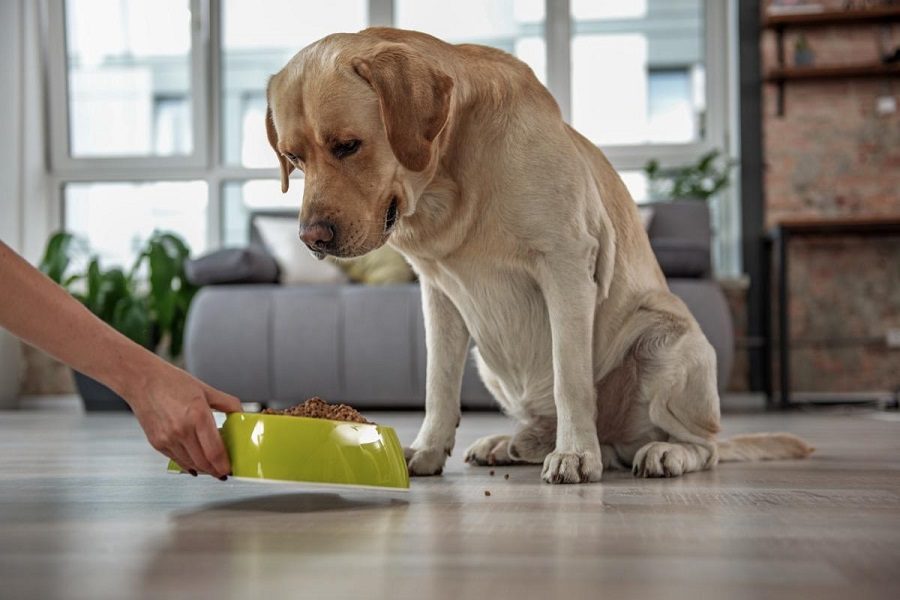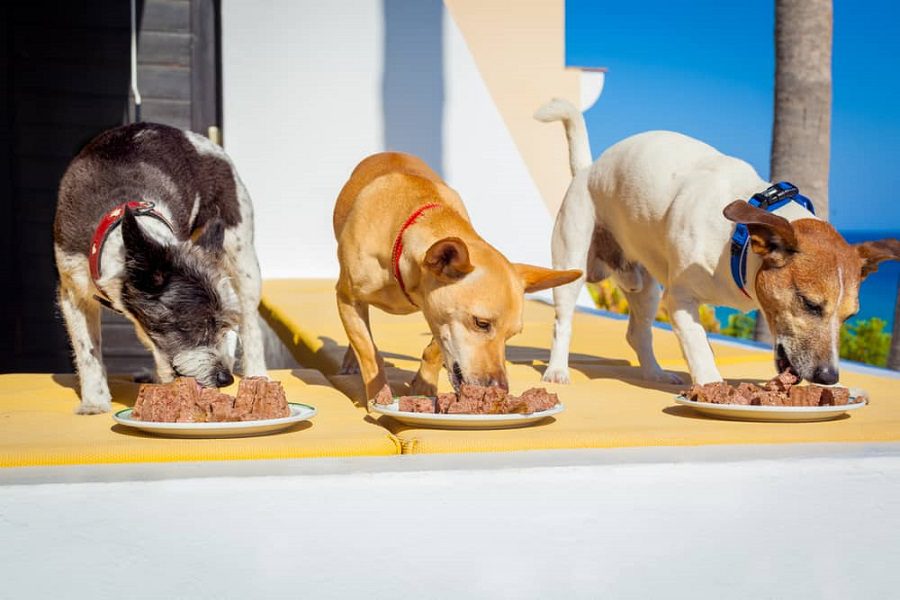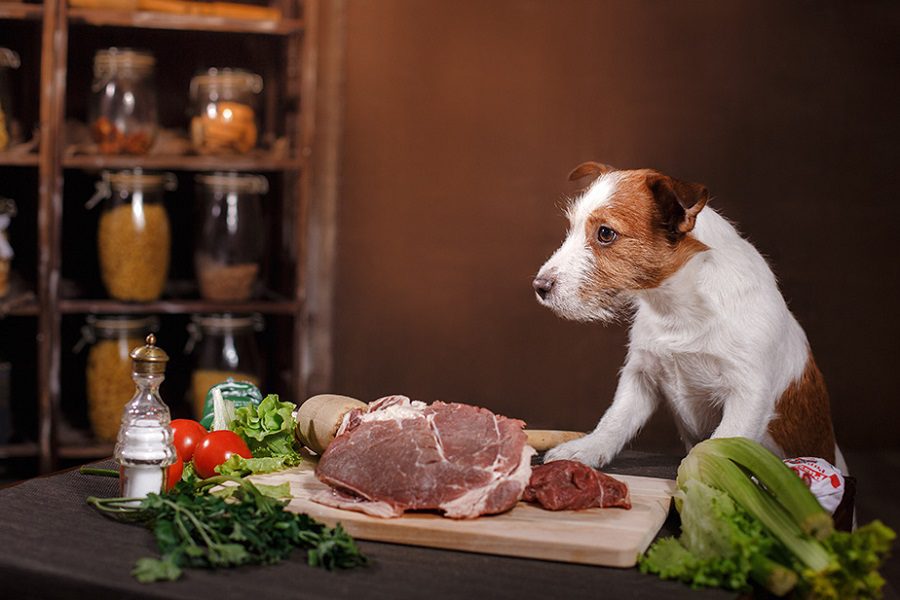Last Updated: 1 year ago
If you own a large dog breed, it is important to understand there are many responsibilities you need to shoulder.
This is especially true when it comes to diet and nutrition. Nothing is more important than providing your dog with the best food for large dogs to keep him healthy, active and disease free.
Giving your big pooch an adequately formulated and top-notch diet is the only thing that can guarantee his well-being in both the short and long run.
This is where you will find yourself in a conundrum because you can’t just select any dog food right off the shelf. There are plenty of choices when it comes to large breed dog foods, but you have to select the best one according to your dog’s body mass and nutritional requirements.
How To Ensure Your Dog Stays Healthy Via Proper Diet
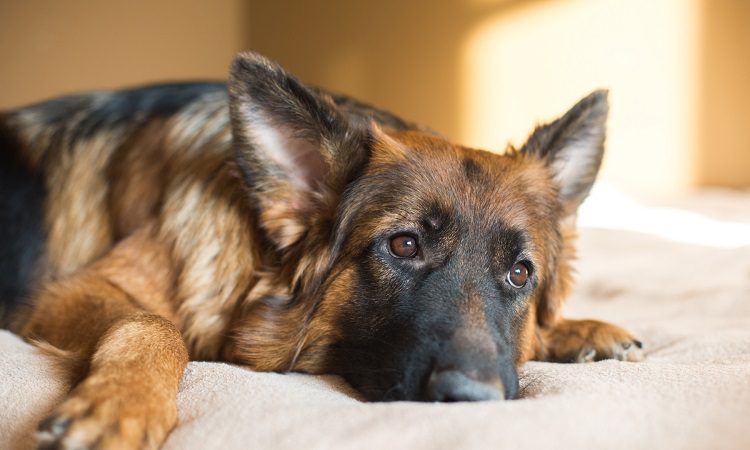
Big dogs require a healthy combination of minerals and vitamins.
Big dog breeds, like Mastiffs, Great Danes, Rottweilers and German Shepherds, have different needs when it comes to nutrition. Their diet considerably varies in comparison to the food given to smaller dog breeds.
Although every breed is born with actively developing bones, in larger dog breeds, especially when they are puppies, they stand a high chance of developing different kinds of bone disorders and joint complications, owing to their rapid growth and development.
As a matter of fact, bigger dog breeds at just 5 months of age reach 50% of their growth.
The rate of growth in all puppies largely depends on the type of diet they are given. This is important as you should always feed your puppy with proper food for large breed puppies.
In comparison to smaller dog breeds, the nutritional intake of larger breeds must always be monitored and restricted. The amount of fat and calcium they consume must be regulated.
Sure, they will fully grow, but the time it will take for them to grow will increase, which is healthier. This gradual growth will also curb common joint and bone disorders in larger dog breeds, resulting in fewer trips to the vet.
Main Ingredients That Need To Be Restricted In Large Breed Dog Food
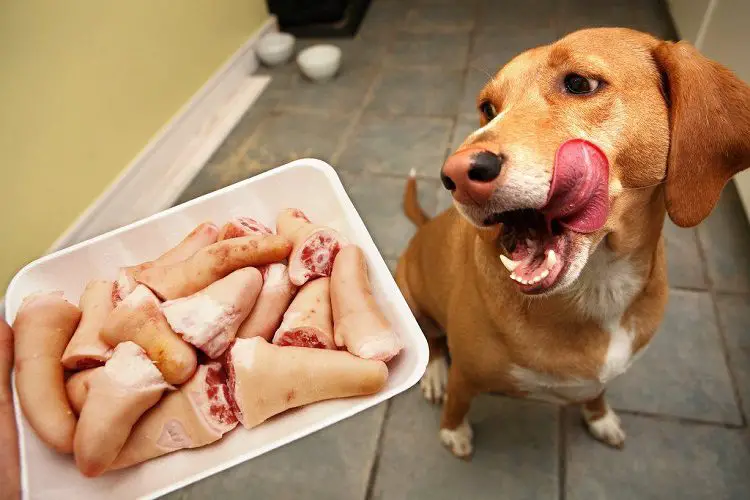
The two fundamental macronutrients you need to control when you feed your big dogs are calcium and fat. A diet that packs a lot of fat will only result in weight gain. This weight gain will also affect his muscles and bone structure.
And if he is just a pup, feeding him foods laced with fat will adversely affect his muscle development, which will in turn lead to numerous health complications during his growth.
Restricting the levels of fat (calories) he consumes will undoubtedly help minimize the chances of developmental problems and joint disorders. Simply put, the heavier the dog is when he is a pup, the more his chances of developing these disorders will increase.
This is why it is strongly recommended you do not feed a large breed dog commercial food because it contains a high amount of fat. Instead, give him pedigree large breed dog food.
Furthermore, excessive intake of calcium can also make your dog susceptible to skeletal issues. If you feed your dog commercial dog food, never give him calcium supplements.
How To Choose The Best Food For Large Dogs
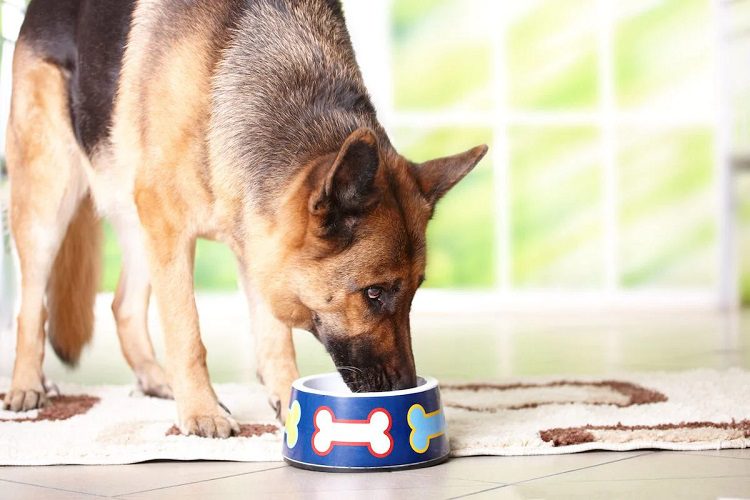
For starters, you can select the best foods for large breed dogs through a detailed large breed dog food comparison.
However, it is important to select a dog food brand that is AAFCO food trials approved, for example, Pedigree large breed dog food or Blue Buffalo large breed dog food.
The AAFCO label is a guarantee the food contains top quality ingredients and that the formulation has no defects or deficiencies.
You will be surprised to know there are many commercial dog food brands that base their formulation on a single recipe and do not test it on dogs before shipping them to stores. There is no way to tell whether or not these commercial dog foods are good for your pooch or not.
This is why it is important to choose a brand, for example, Purina large breed dog food. Dog food top quality brands make involve considerable research.
Plus they also consult professional animal nutritionists and veterinarians when making a balanced formula for large breed dogs.
How Much Food Should You Give Your Dog?
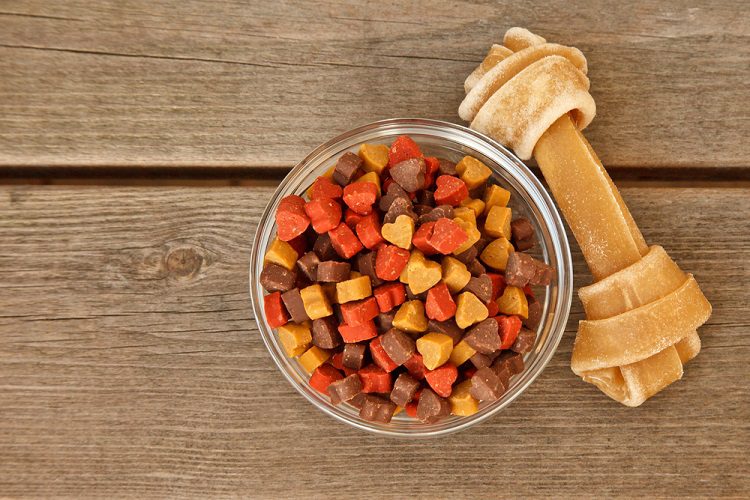
Just like bigger isn’t always better for humans, the same principle applies to your canine companions as well.
Irrespective of the size of the dog or its breed, it is absolutely essential they maintain an optimal body-to-fat ratio. The only way you can ensure this is if you provide them with the best large breed dog food in the market with some daily exercise.
Another thing, is large breed canines are naturally predisposed to gaining weight, which is why it is important to refrain from overfeeding them. Just because he is a puppy doesn’t mean you have to overfeed him with calories so he can grow up to become big and strong.
The best thing you can do is provide him with a low caloric diet, which will help him to gradually grow, avoiding joint issues and weight problems as he grows old.
Bottom Line
The diet for large dog breeds is quite similar to that of smaller breeds in terms of nutrition. There are a couple of vital exceptions you need to keep in mind.
Bigger breed puppies and adults need to be fed an adequate amount of nutrition to avoid experiencing orthopedic complications, obesity and numerous other skeletal issues.
The best large breed dog food comprises an optimal concoction of ingredients and formula that can keep the dog healthy and active when he is just a pup as well as when he grows up.

